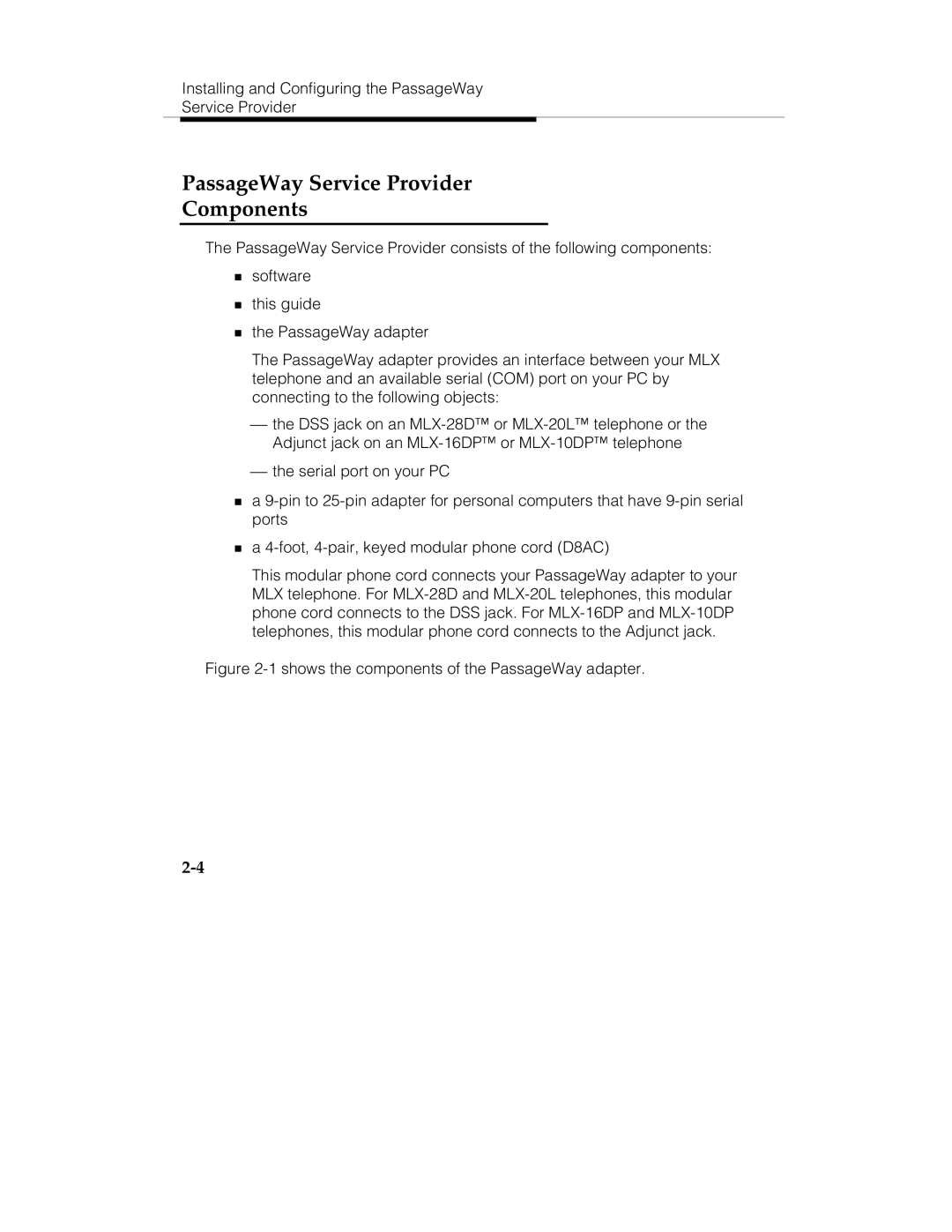passageway service provider for merlin legend communications system specifications
Lucent Technologies, a prominent player in the telecommunications industry, was pivotal in the development and provision of communication solutions, including the Passageway Service Provider for the Merlin Legend Communications System. This innovative solution was designed to enhance communication efficiency for businesses of all sizes, particularly in bustling office environments.The Passageway Service Provider functioned as a crucial component in the Merlin Legend ecosystem, enabling seamless integration and management of voice and data communications. One of its main features was the ability to facilitate streamlined access to various communication channels, ensuring that users could handle calls, faxes, and Voicemail with ease. This integration was essential for businesses that required uninterrupted connectivity and straightforward management of their communication systems.
One of the standout technologies employed in the Passageway Service Provider was its advanced VoIP (Voice over Internet Protocol) capabilities. This technology allowed organizations to leverage their existing internet infrastructure to make voice calls, reducing costs significantly and improving the quality of communication. VoIP also supported features like call forwarding, call waiting, and conference calling, enhancing the overall communication experience for users.
Additionally, the Passageway Service Provider featured robust routing algorithms and call management functionalities, enabling businesses to prioritize calls based on urgency and availability. With its advanced interactive voice response (IVR) systems, organizations could streamline call handling, directing callers efficiently to the appropriate departments or extensions, thereby enhancing customer service.
Another key characteristic of the Passageway Service Provider was its scalability. As businesses grew, the communication system could easily be expanded to accommodate additional users and features without requiring significant overhauls or disruptions. This flexibility made it particularly appealing to growing enterprises, allowing them to invest in communications that could evolve alongside their operations.
Furthermore, the Passageway Service Provider supported remote access capabilities, an essential feature for increasingly mobile workforces. Employees could access the communication system from remote locations, ensuring they remained connected regardless of where they were working.
In summary, Lucent Technologies' Passageway Service Provider for the Merlin Legend Communications System offered a comprehensive suite of features, advanced technologies, and essential characteristics that catered to the dynamic needs of modern businesses. By enhancing voice and data management, it contributed to smoother operations and improved communication efficiency, defining a new standard in the telecommunications landscape.

